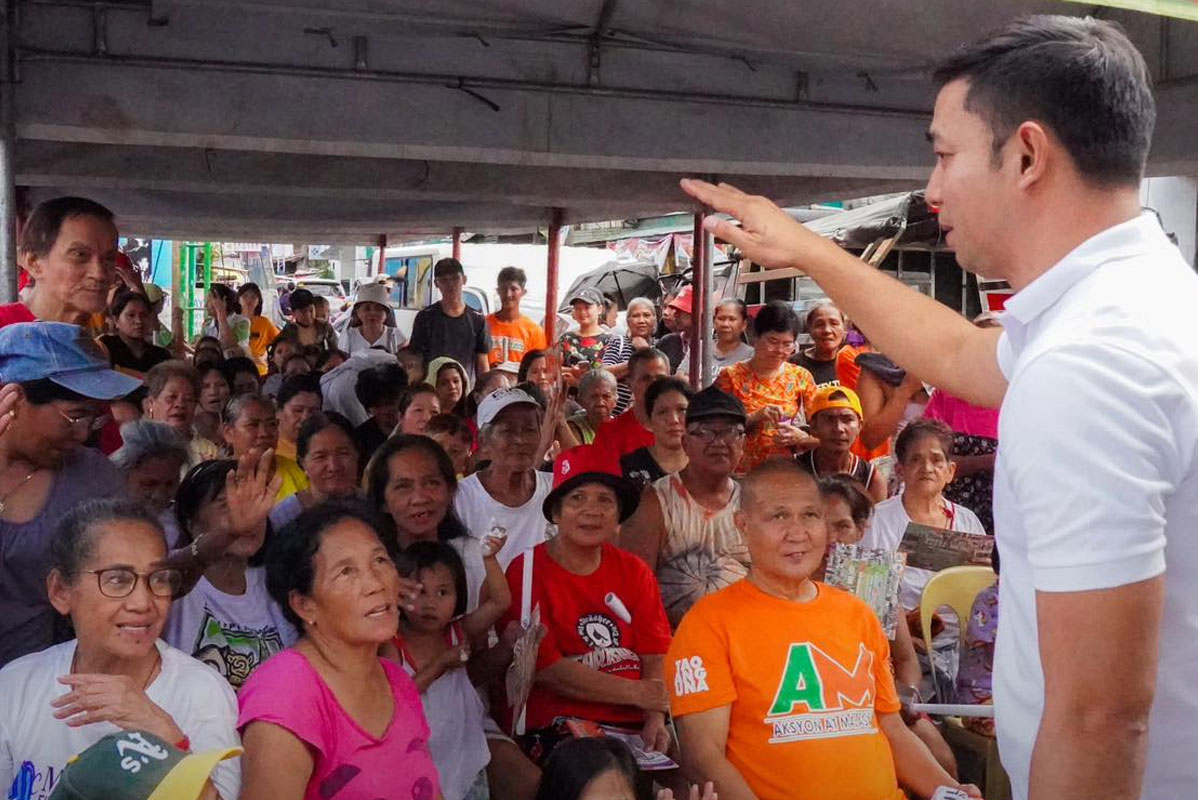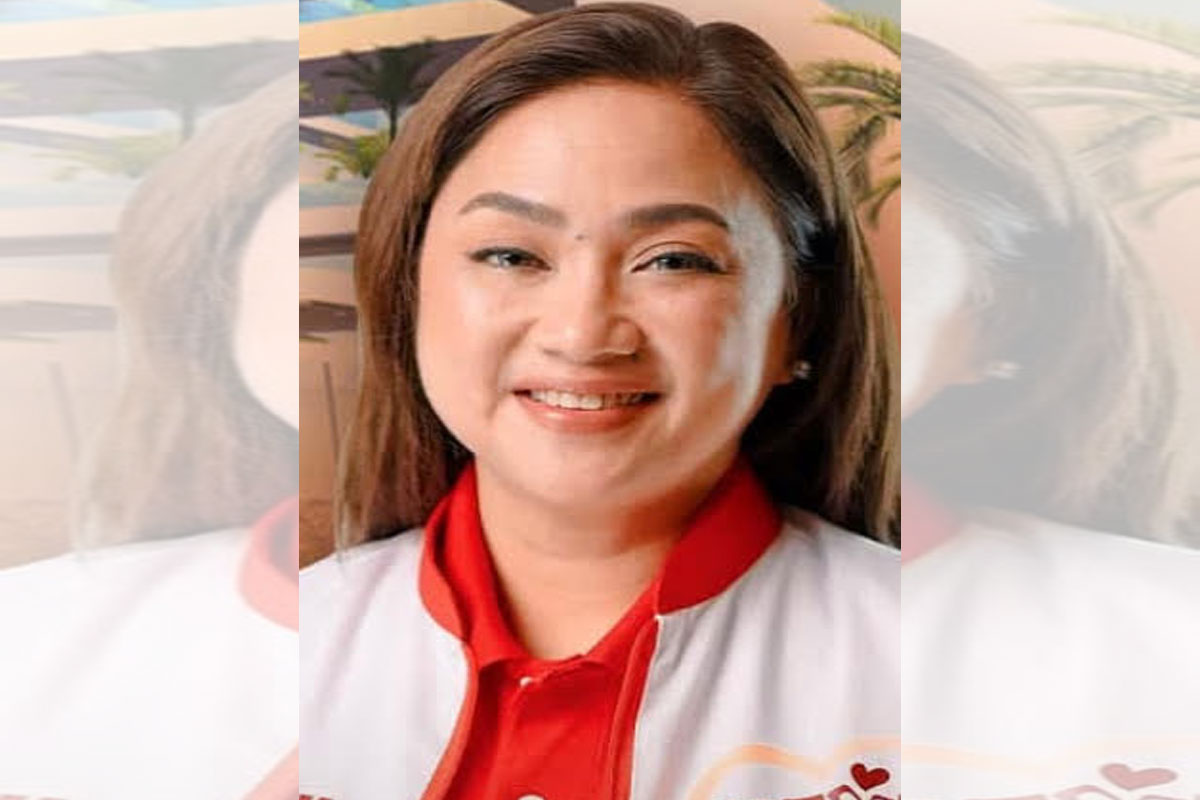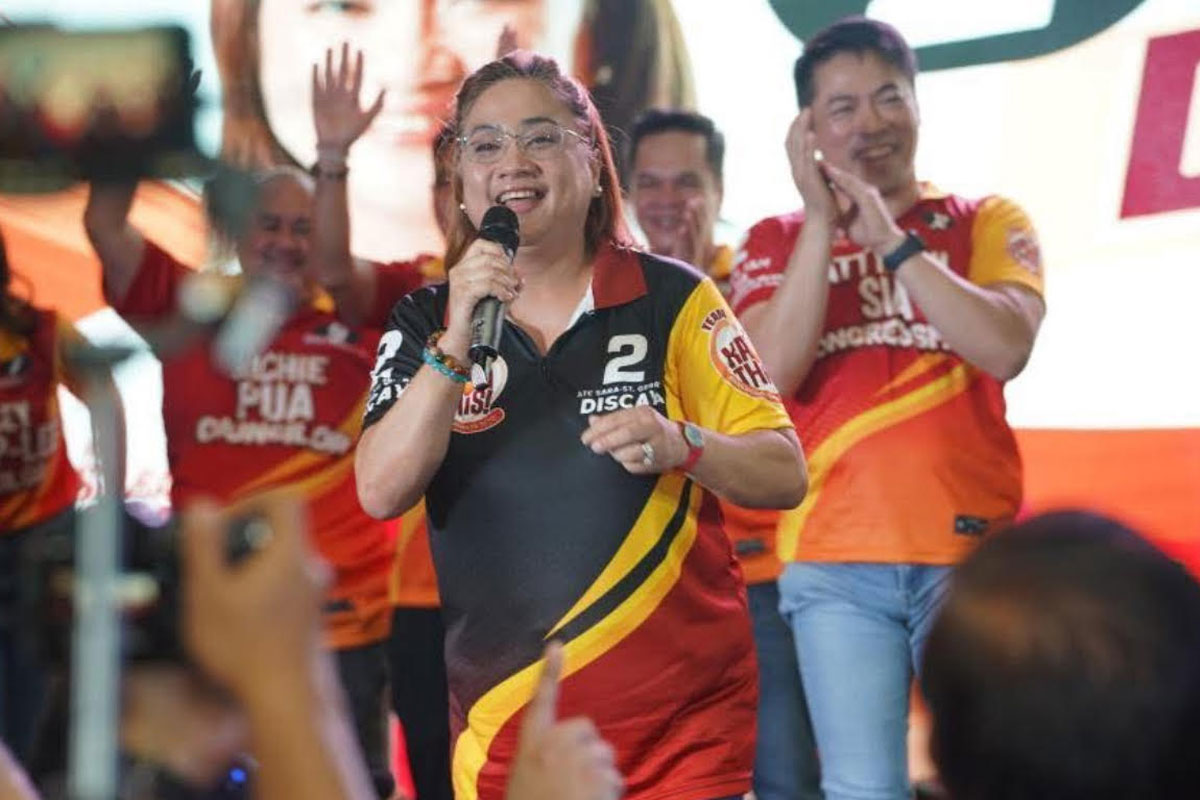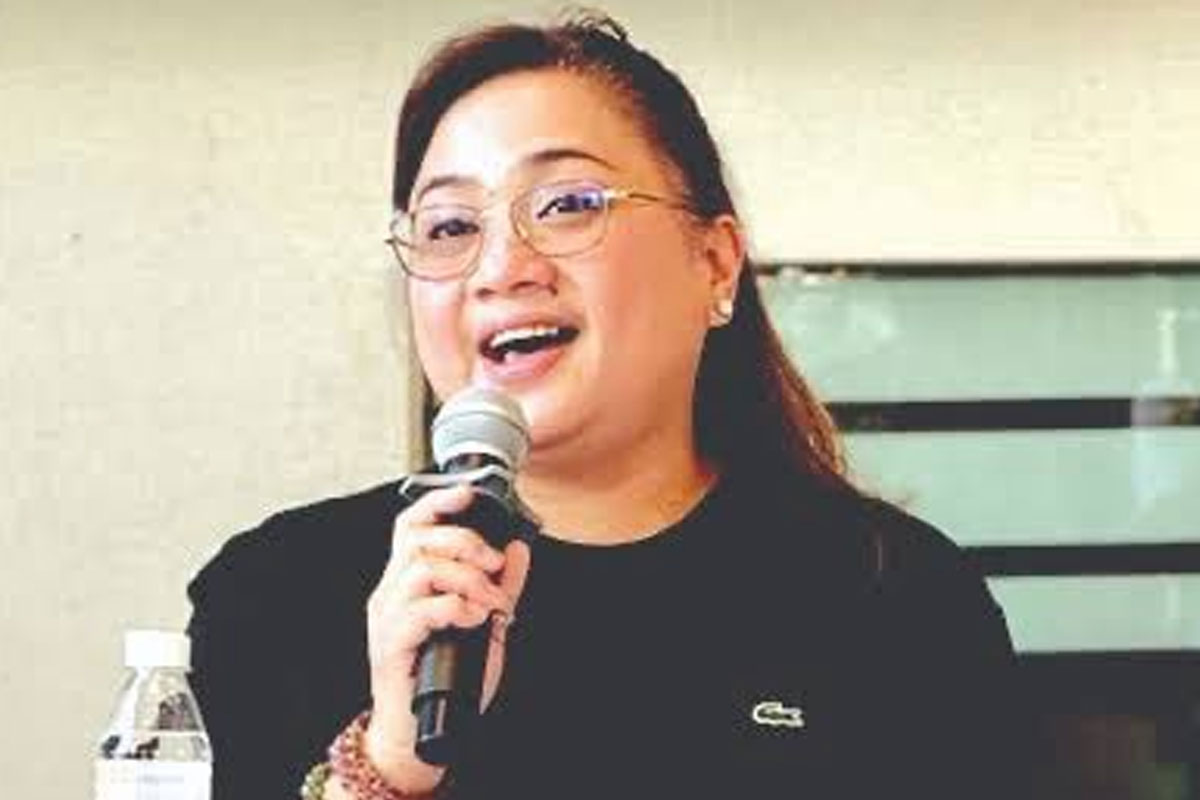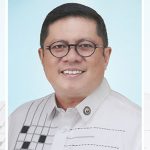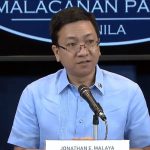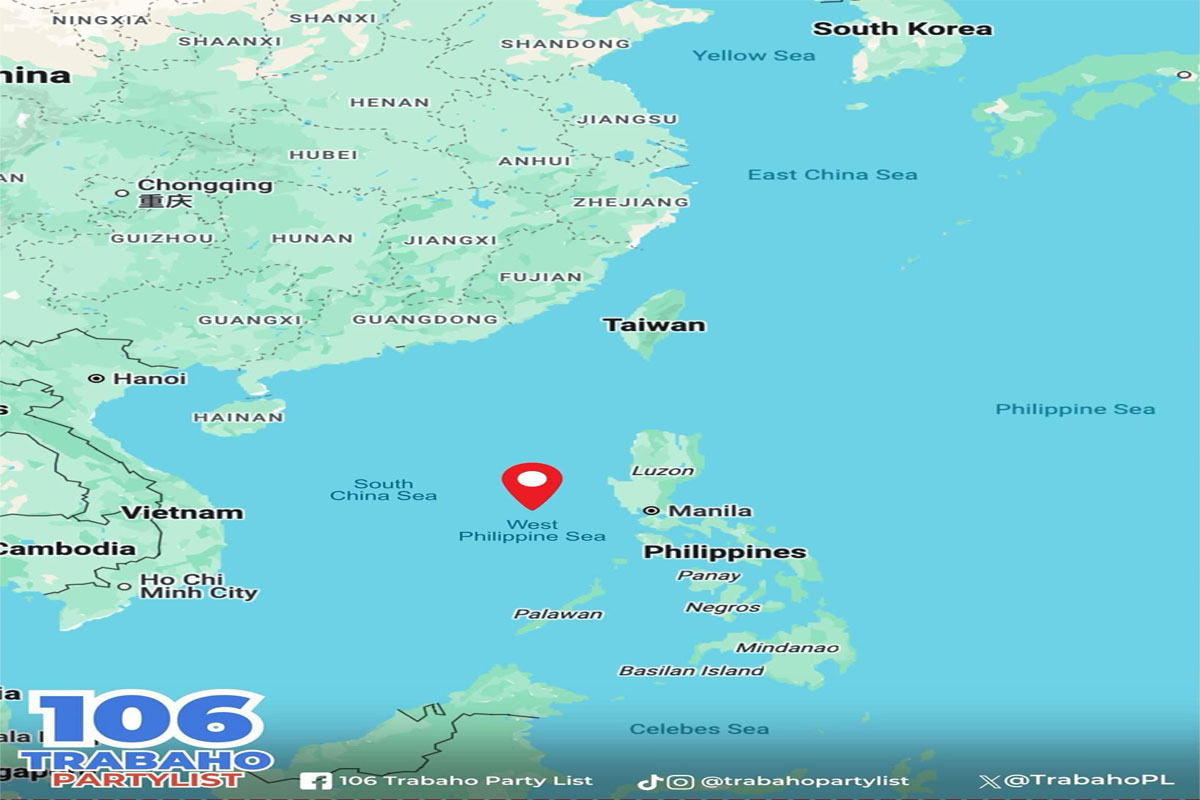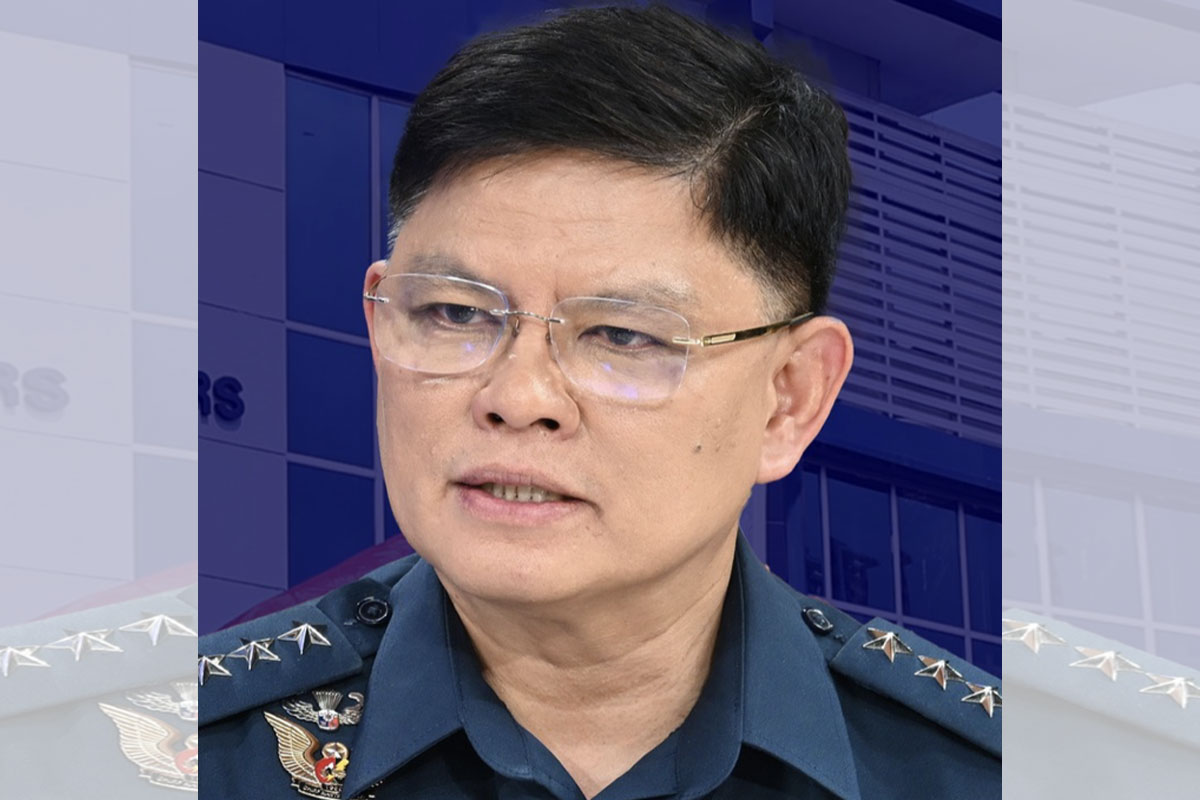
Villafuerte asks senators to consider 4 House-passed bills
Measures benefiting healthworkers, OFWs, other sectoral groups
WITH this week’s resumption of sessions following the yearend break of the 19th Congress, Camarines Sur Rep. LRay Villafuerte has called on senators to mull over in the Senate at least four measures that were approved last year by the House of Representatives to extend succor separately to various sectoral groups, including barangay health workers (BHWs), overseas Filipino workers (OFWs), teachers, the military and other uniformed personnel (MUP).
“As both the Senate and House reopen this week following the five-week yearend recess, I am asking our senators to consider bills that the House passed separately last year to provide succor or relief to four sectors, in keeping with President Marcos’ goal of attaining inclusive growth and improving the lives of all Filipinos,” Villafuerte, National Unity Party (NUP) president, said.
In a statement issued at the end of the Dec. 13-Jan. 21 congressional break, Villafuerte said these House-approved measures that he hopes the Senate would act on this year include the bills that aim to give job security to BHWs (House Bill or HB 6557); provide local and foreign specialist doctors to migrant workers and their families at the OFW Hospital or OFWH (HB 8325); and furnish OSYs (out-of-school youths) with training and other social protection programs (HB 9347).
These House-approved bills he is asking senators to mull over also include those that aim to further professionalize and increase the pay of Bureau of Immigration (BI) workers (HB 8203); and exempt teachers, soldiers and other uniformed personnel from the government rightsizing plan (HB 7240).
“Millions of Filipinos and their families stand to benefit from the legislative approval and enactment into law of these bills that the House, under the leadership of Speaker Martin (Romualdez), had approved on third and final reading since the start of the Second Regular Session of the 19th Congress,” Villafuerte added.
The NUP president, along with Reps. Miguel Luis Villafuerte and Tsuyoshi Anthony Horibata and the Bicol Saro partylist, had authored measures that were incorporated into the consolidated HB 6557, HB 8325, HB 7240 and HB 8203 that were passed by the House last year and that are pending in the Senate.
Villafuerte and Horibata are among the co-authors of HB 9347.
A former governor, Villafuerte said that HB 6557 is proposing a broad set of economic incentives and benefits, ranging from a P3,000 monthly allowance and hazard pay to insurance coverage and free medical plus legal services for all BHWs in the country.
The bill also eyes job security for our BHWs “so they will no longer be at the mercy of local chief executives who, at present, can fire them capriciously over, among others, their perceived adverse political leanings,” Villafuerte said.
He said HB 6557 wants to ensure security of tenure by conferring a first-grade Civil Service Eligibility to every accredited BHW who has rendered at least five years of continuous service as a community health worker.
“Our BHWs are truly indispensable as basic medical frontliners in local communities, but they are sadly treated as mere ‘volunteers’ under the law who each receive about five weeks of training and meager pay. Worse, they are at the mercy of local government officials, and can be terminated capriciously at the instance of perceived adverse political leanings. We must put an end to this unscrupulous practice that has allowed them to be politicized.”
Villafuerte was referring to Republic Act (RA) No. 7883 or “The Barangay Health Workers’ Benefits and Incentives Act of 1995.”
Under HB 8325, meanwhile, he said the House wants both local and foreign cardiologists, pulmonologists, nephrologists and other medical specialists to hold clinics and treat migrant Filipinos and their families at the proposed OFWH in Pampanga.
This bill tasks the Department of Health (DOH) to sign up medical specialists to treat OFWs and their families at the OFWH, which is the Level III hospital that lawmakers have proposed to be established in San Fernando, Pampanga, said Villafuerte.
“It authorizes the OFWH management to invite to the hospital foreign experts in fields not readily available in the country, and to send its personnel to research or medical institutes for advance healthcare training and to attend international or local conferences and seminars, subject to the approval of the DMW (Department of Migrant Workers),” he said.
“HB 8325 seeks to establish a special hospital for OFWs and their dependents in order to address the limited scope of our existing medical package of services under the Medical Care Program for OFWs, pursuant to Executive Order (EO) 195 series of 1994,” Villafuerte said.
Although the House-passed bill places the OFWH under the control of the DMW, he said it assigns to the DOH the job of: (1) encouraging medical specialists in other government hospitals such as the Philippine Heart Center (PHC), Lung Center of the Philippines (LCP) and Philippine General Hospital (PGH) to hold clinics in the OFWH; and (2) establishing OFW centers or wards in DOH-retained hospitals to complement the OFWH.
As for HB 9347, the former governor said this bill wants local government units (LGUs) to play pivotal roles in the nationwide listing of OSYs and mobilization of Sangguniang Kabataan (SK) and Local Youth Development Council (LYDC) panels to provide young Filipinos with the appropriate training and social protection programs to best empower them as partners in nation-building.
He said the bill tasks LGUs with creating the database of OSYs in their respective cities, municipalities and barangays to ensure that Filipinos between the ages of 18 and 30 who are neither in school nor gainfully employed would have “ready access to adequate education, health and social services with the end-goal of tapping their full potentials as partners of Government in nation-building.”
These programs that are to be made available to OSYs through SKs and the LYDCs of the National Youth Commission (NYC) shall include back-to-school transition; enrolment in the Alternative Learning System (ALS) or Technical-Vocational Education and Training (TVET); and counseling plus mental and reproductive health services in the barangay, municipal and city levels.
Regarding HB 7420, Villafuerte said it proposes to exempt teachers, healthcare providers, soldiers and other uniformed personnel from this House-approved plan to rightsize the bureaucracy and pare unnecessary expenses.
This rightsizing proposal, as presented under HB 7240, shall be carried out over a three-year period, and provides for retirement benefits and separation incentives to would-be affected workers, he said.
The bill further wants to make it optional for the Congress, Judiciary, state universities and colleges (SUCs), Office of the Ombudsman and other Constitutional Commissions, state-run firms under the Governance Commission for Government-Owned and -Controlled Corporations or GOCCs (GCG), and local government units (LGUs) to implement their own rightsizing plans.
Under HB 7240, rightsizing is also optional for state-run firms under the Governance Commission for Government-Owned and -Controlled Corporations or GOCCs (GCG), he added.
To streamline public service delivery and cut unnecessary state expenses, Villafuerte explained that the bill “proposes to give the President the authority to abolish, create and transfer offices within the National Government, including departments, bureaus, offices, commissions, boards, councils, and all other entities attached to or under their administrative supervision.”
As regards HB 8203, he said this bill seeks to authorize the BI to collect immigration fees, fines and penalties, and to retain a third of all such collections—but not to exceed P1.2 billion—for a proposed Immigration Trust Fund (ITF) to modernize the immigration bureau, bump up its pay scales and further professionalize its officers plus rank and file via trainings, seminars and other career advancement programs.
Villafuerte said the proposed P1.2-billion ITF shall be administered by the BI Board of Commissioners for the modernization of the agency’s facilities and equipment, payment of employee benefits and further professionalization of its officers and employees.
During the congressional recess, Villafuerte had cited Romualdez for steering through the House the swift passage of the government’s priority legislative measures designed to sustain the robust post-pandemic growth, create more jobs and livelihood opportunities, and improve the lives of Filipinos.
“Speaker Martin traced the superb performance of the House of Representatives last year to the continued unity and cooperation of all of us in the chamber in serving the highest interest of the Filipino people,” Villafuerte said.
“But the Speaker has looked past something in his recap, and this has to do with the remarkable role he has played in shepherding the passage of a fairly large number of priority bills identified by the President and LEDAC (Legislative-Executive Development Advisory Council) for urgent action,” he said.
He said that, “Under the very able leadership of the Speaker, the House has passed a sizable number of proposed laws meant to bring the Marcos administration closer to the President’s paramount goal of high and inclusive growth for Filipinos by way of accelerating poverty reduction, turbocharging the economy, and generating more and better jobs and livelihood opportunities for all.”
Villafuerte said the NUP, which, with 45 members, is the biggest power bloc in the House next to the Romualdez-led ruling Lakas-CMD, remains fully supportive of the Speaker and of the legislative agenda of President Marcos, “in line with the Chief Executive’s commitment to not leave anyone behind in our country’s quest for high and inclusive growth.”
Last year, the NUP formally declared its continued support for Romualdez till the end of the 19th Congress in 2025 and for the legislative agenda of President Marcos till the end of his term in 2028.
Citing House records, Villafuerte said that over 600 House bills (HBs) have been passed by the bigger chamber and are now awaiting action by the Senate, enabling the House to process an average of 28 legislative measures for each of the 121 session days in the 19th Congress.
Of these House-passed measures, Villafuerte said that 34 have become laws, seven (7) more have already been ratified by both chambers and awaiting approval by the President, and another five (5) are being deliberated upon by their respective bicameral conference (bicam) committees for eventual ratification by the Senate and the House.
The new laws include those on debt condonation of Agrarian Reform Beneficiaries or ARBs (Republic Act or RA 11953), establishing the Maharlika Investment Fund or MIF (RA 11954), extending the period of availment of estate tax amnesty (RA 11956), establishing specialty centers in Department of Health or DOH hospitals in all regions (RA 11959), institutionalizing the “One Town, One Product (OTOP) program of the Department of Trade and Industry or DTI (RA11960), and on the protection and welfare of caregivers (RA 11965).
Villafuerte has co-authored three of these laws—RA 11953 on ARB debt condonation, RA 11954 creating the MIF, and RA 11960 institutionalizing the OTOP program; along with four of the enrolled bills awaiting the President’s signing into law—Magna Carta of seafarers, revitalization of the moribund salt industry, institutionalization of the DTI’s “Tatak Pinoy” program, and the grant of additional benefits to centenarians plus cash gifts to octogenarians and nonagenarians.
The former CamSur governor has authored or co-authored 23 bills from among the 20 LEDAC and 17 SONA priority bills passed by the House so far in the Second Regular Session of the 19th Congress.
Under Romualdez’s leadership, the House had passed all 17 SONA-endorsed bills by September, or three months ahead of the end-December 2023 target, he said.









